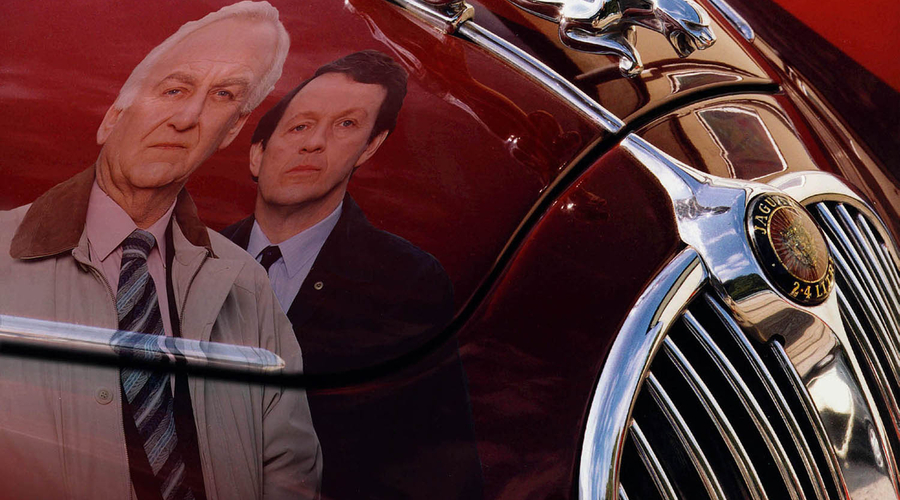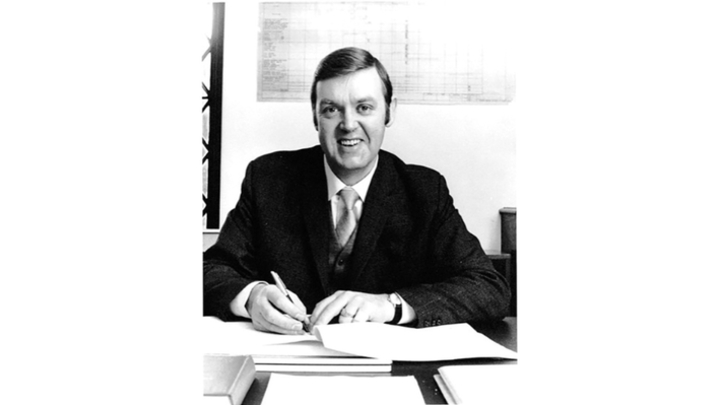John Mair investigates the appeal of one of TV’s greatest crime series as the franchise finally concludes
British television marks the end of an era on 12 March. The Inspector Morse franchise finally comes to an end after close to four decades on screen. The last Endeavour on ITV is the finale after 102 films concerning the Oxford detective.
Inspector Morse, starring John Thaw as the eponymous policeman, has been a staple of ITV’s drama offering since the late 1980s. At its peak, up to 18 million people tuned in to watch the sullen sleuth on Sunday nights. In 2018, Radio Times readers voted it “the greatest crime drama of all time”.
It is thought to have been seen worldwide by 1 billion people in 200 countries. Morse was one of the first big British drama series to successfully cross the Atlantic, where it’s final iteration is part of the Masterpiece strand.
Closer to home, Morse was Oxford and Oxford was Morse.
Its creation was a combination of a wet Welsh holiday and an Oxford pub meet. Colin Dexter wrote the first novel, Last Bus to Woodstock, sheltering from the Cambrian rain while producer Kenny McBain and scriptwriter Anthony Minghella commissioned the first TV film, The Dead in Jericho, from Dexter in the Dew Drop Inn in Oxford’s Summertown. They had already written the script and recced the locations. It was shown in 1987.
From the beginning, the Morse franchise has been a showcase for a galaxy of stellar acting talent – with Thaw, his daughter, Abigail, Kevin Whately (who plays sidekick Lewis), Laurence Fox, Shaun Evans, Roger Allam and Anton Lesser all to the fore. Big-name actors queued up to be on screen with them – Sir John Gielgud, Richard Wilson, Patricia Hodge and Zoë Wannamaker, to name a few.
Behind the camera were such luminaries as Minghella, Ed Childs, Danny Boyle, Julian Mitchell, Jack Gold and Adrian Shergold.
Dexter played 30-odd Alfred Hitchcock-style cameos in the TV adaptations. He was Morse in miniature: reluctant to buy his round and a crossword addict. Yet he was a crime writer who had not seen the inside of a police station until well into the first series of his creation.
What was the series’ appeal? There are the characters: particularly, the morose Morse (named after Lloyds Bank chairman Sir Jeremy Morse) and his bagman Lewis, not the brightest apple in the picnic basket, but willing to be Morse’s gofer, with an ever-open wallet to buy his boss drinks.
Then there’s the testy relationship with police superiors and, of course, the vintage red Jaguar – reg 248 RPA. It had been an Audi in the books but Thaw insisted that this was not sophisticated enough. Plus, simply good stories and classy direction over two hours, which remains an unusual length for an episode of TV drama.
But perhaps the biggest hero was the Oxford setting. One thousand years of history, beautiful stone colleges, full of bright people who enjoy intrigue. Oxford colleges can be vicious places – intellectually and physically. At some points in the 1990s, when Morse was on air, Oxford was briefly the murder capital of the world, with one murder a week. The true figure was two per year. Nevertheless, former Guardian editor Alan Rusbridger was warned by his children to walk carefully, when he took over as Principal of Lady Margaret Hall.

Never has a setting been better chosen. Inspector Morse was an intellectual, a classical-music lover, aesthete and BA (Oxon) – failed. Oxford college cloisters and quadrangles were his perfect setting in life and death.
Morse treated Oxford with huge respect. The city – both town and gown – has not always repaid that. Television is a bit infra dig for the gown. For the town, thousands of tourists every year arrive to explore Morseland. But, without any signage, they need to be a detective to find it. My book can help guide them.
That is why I am pushing the city to create a “Morse Code” – 10 or so white plaques for a Morse trail for all, for ever.
And yet much of Morse was not actually filmed in the city of dreaming spires. Exteriors, yes; interiors, not always. Television economics got in the way – union strictures on overtime meant it was simply too expensive to keep crews away from base for long periods. Inspector Morse’s “film house” was in Ealing, London. Another example: in the first film, Morse and Lewis go into the Old Bookbinders in Jericho, “his first pub”, for a snifter, but the inside was filmed at Bray Studios. Morse fanatics get very confused when they come into my local pub.
One of the secrets of the franchise’s longevity is how it has been extended and deepened. Dexter wrote just 13 novels; they became the bedrock of 33 Morse films. When Morse died on screen in 2000 – and John Thaw in real life less than 18 months later – ITV extended the franchise with Lewis, which ran from 2006 to 2015. Lewis was promoted from sergeant to inspector. His sidekick was DS James Hathaway, played by Laurence Fox, now a contrarian culture warrior on GB News.
When that concluded, the franchise rose from the dead with the prequel, Endeavour (Morse’s first name, not revealed until the end of the original series). The copper told the curious that it was “Inspector”. By the end of its decade, Endeavour will account for 36 films out of that total of 102.
A common thread in the brand extension has been Russell Lewis. Actor, then writer, then producer of many of the later films, he is strangely camera-shy and now busy on his new hit drama Grace.
In terms of genre, Morse can best be seen as police procedural, but a slow one. There is a link between Dixon of Dock Green and Line of Duty via Cracker. No rough stuff, no terrorism, no corruption, just the use of brain power and crossword anagrams to solve complex crimes. It embodies a police world of the 1960s and 1970s that we have lost. Peter Neyroud was the real chief constable of Morse’s force – Thames Valley Police. He was a BA (Oxon) and treated with huge suspicion by ordinary coppers. To them, he was a “clever bugger” and called “Morse” behind his back.

and Oxford: After Four De-
cades is this the End of the
Road?, edited by John Mair,
is published by Bite-Sized
Books, priced £14.99. ISBN:
978-1739152451
Oxford CID used to have a cardboard cut-out of Morse at the head of the table at their annual dinner. They called crimes inside colleges “Morse jobs”.
ITV is surprisingly unproud of its oldest long-form drama. It is almost sneaking out the last Endeavour series. I repeatedly tried to persuade it to have a red-carpet premiere in Oxford, and was met with a stone wall. Local cinemas, too. Thaw would be turning in his grave.
His daughter, Abigail, who established her on-screen Endeavour niche as Dorothea Frazil, the editor of the Oxford Mail, is not. She is very much alive and was the star of our 4 March Oxford Morsefest, which featured five walks, a drink in the Morse bar in the Randolph Hotel and ended with a meal in the Bookbinders, another Morse watering hole.
British TV’s drama legacy is much richer thanks to the Morse franchise. A fine example of the value of making and exporting British TV creativity. Morse will live on in archive channels worldwide. Adieu Endeavour Morse.
John Mair is a former BBC producer who has edited 53 books on the media and current affairs.







